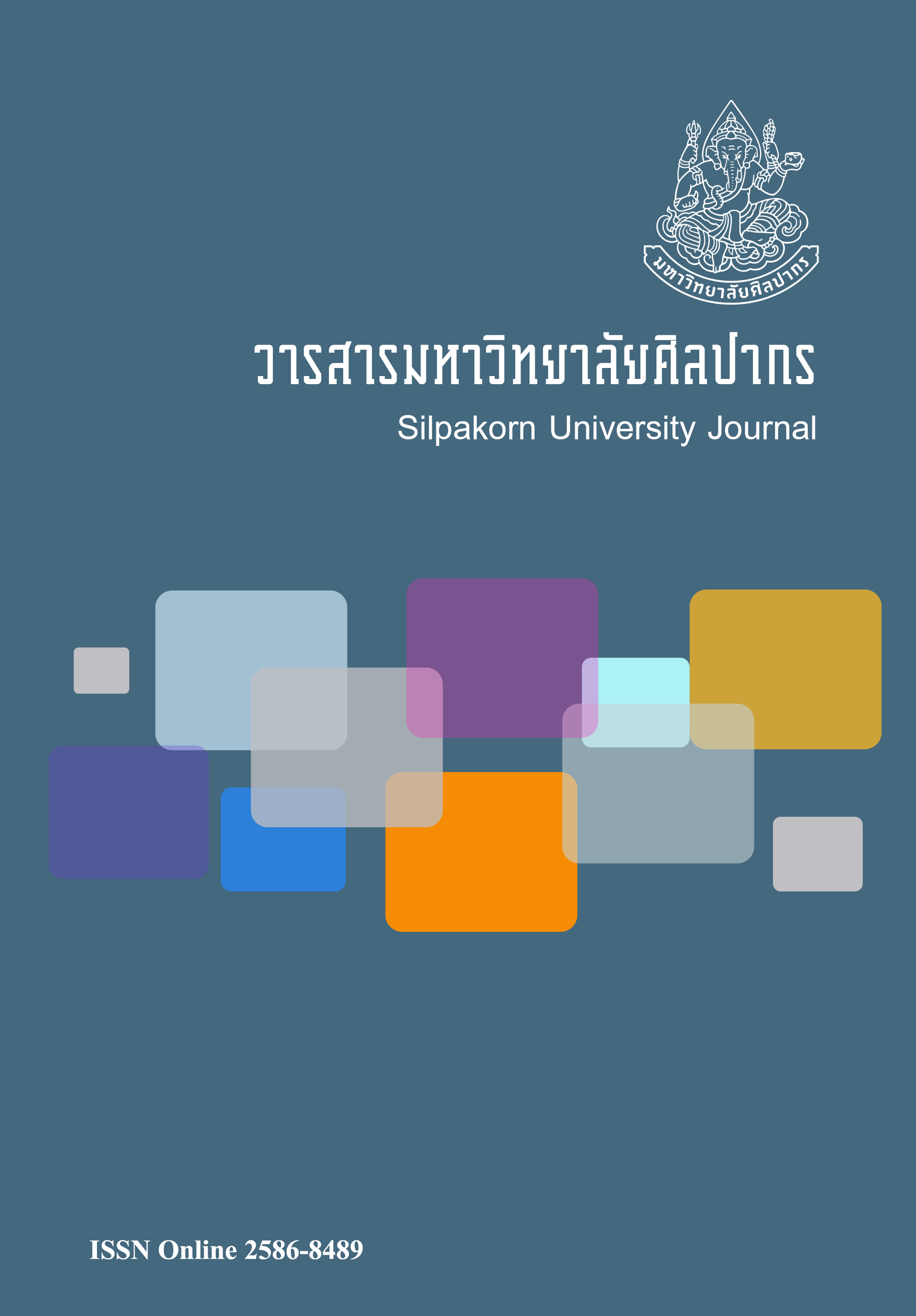(Retracted) การใช้วิธีการสอนคำศัพท์แบบผสมผสานเพื่อพัฒนาความสามารถด้านคำศัพท์ (The use of mixed strategies to improve English vocabulary skills)
Main Article Content
Abstract
ความสามารถด้านคำศัพท์ เป็นสิ่งที่มีความจำเป็นอย่างยิ่งในการสื่อสารครบทั้ง 4 ทักษะ คำศัพท์ถือเป็นจุดศูนย์กลางของวิธีที่ผู้คนเรียนรู้ภาษา การเรียนรู้คำศัพท์ ความหมาย และการใช้คำ จะช่วยให้สามารถสื่อสารได้ทุกทักษะโดยเฉพาะการอ่านภาษาต่างประเทศ เมื่อมีความสามารถในการรู้คำศัพท์เป็นอย่างดีจะทำให้มีความสามารถในการอ่านเพิ่มขึ้นด้วย ดังนั้นคำศัพท์จึงมีความสำคัญต่อกระบวนการอ่านเป็นอย่างมาก บทความนี้จึงนำเสนอวิธีการเรียนรู้คำศัพท์ประเภทต่างๆ เพื่อช่วยพัฒนาความสามารถด้านคำศัพท์ โดยนำเสนอข้อมูลตามลำดับดังนี้ คือ ความสำคัญของการเรียนรู้คำศัพท์ บทบาทของคำศัพท์ในการสอนภาษา แนวความคิดที่เกี่ยวข้องกับการเรียนรู้คำศัพท์และประเภทของกลวิธีการเรียนรู้คำศัพท์ การใช้วิธีการสอนคำศัพท์แบบผสมผสาน และข้อเสนอแนะสำหรับการเรียนการสอน
Vocabulary competence is one of necessary tools to communicate in all four English skills. It is the core method of language learning. Learning vocabulary, its meaning, and usage will enhance English skills, especially reading in foreign languages. High vocabulary competence can help learners to improve their reading abilities. Therefore, vocabulary competence is very important for reading process. This paper aims to suggest strategies for learning English vocabulary to improve vocabulary competence. The organization of this paper is as follows: the importance of learning vocabulary, the roles of vocabulary in language teaching, concepts and strategies relevant to vocabulary learning and the use of mixed strategies in vocabulary teaching. Suggestions for learning and teaching are also discussed.
Article Details
References
Coady, J.& Huckin, T. (1999) Incidental vocabulary acquisition in a second language. Cambridge: Cambridge University Press.
Gallagher, N. (1999). Key to the TOEFL test clues to meaning. New York: Macmillan.
Grace, C.A. (1995). Beginning vocabulary learning: translation in context. Unpublished doctoral dissertation, The University of Arizona, Tucson, Arizona.
Gu, Y. (2003). Learning and teaching english in the Chinese context. A special issue of Asian Journal of English Language Teaching, 13: 4-11.
Hu, X.Q & Kelly,P. (2004). Helping the language learner overcome the hurdles posed by vocabulary with particular focus on the Chinese learner of English. The English Teacher an International Journal, 7(1), 18-33.
John, T. C. (1986). Receptive vocabulary acquisition for reading comprehension. The Modern Language Journal, 20(3), 20-30.
Johnson, D. D. & Pearson, P. D. (1978). Teaching reading vocabulary. New York: Holt, Rinehart and Winston.
Kelly, P. (1990). Guessing: no substitute for systematic learning of lexis. System, 18(2), 199-207.
Krashen, S. (1989). We acquire vocabulary and spelling by reading: additional evidence for the input hypothesis. The Modern Language Journal, 73(4), 440-464.
Lawson, M. J. & Hogben, D. (1996). The vocabulary-learning strategies of foreign language students. Language Learning, 46(1), 101-135.
Lewis, M. (1998). Implementing the lexical approach: putting theory into practice. Hove, England: Language Teaching Publications.
Longman, A. (1993). Longman language activator. Essex: Longman.
การใช้วิธีการสอนคำศัพท์แบบผสมผสานเพื่อพัฒนาความสามารถด้านคำศัพท์ สุพัตรา วชิระเจริญวงศ์ 46
McCarthy, M. (1992). Vocabulary. Hong Kong: Oxford University Press.
McCarthy, M. & O’Dell, F. (1999). Vocabulary in use upper intermediate. Cambridge: Cambridge University Press.
Meara, P. (1996). The classical research in vocabulary acquisition. Clevedon: Multilingual Matters.
Nagy, W. E., Herman, P. A. & Anderson, R. C. (1985). Learning words from context. Reading Research Quarterly, 20(2), 233-253.
Nation, I. S. P. (1990). Teaching and learning vocabulary. Massachusetts: Newbury House.
Nation, P. & Waring, R. (1999). Vocabulary: description, acquisition, and pedagogy. Cambridge: Cambridge University Press.
Pornpibul, N. (2002). Vocabulary learning strategies of independent EFL readers: a focus on dictionary use. Journal of Liberal Arts, 2(2), 58-69.
Schmitt, N. (1998). Instructed second language vocabulary learning. Language Teaching Research, 12, 329-363.
Schmitt, N. (1995). A fresh approach to vocabulary: using a word knowledge framework. RELC Journal. 26(1), 86-94.
Sereesuchat, S. (2001). The study of using vocabulary strategies of grade 11 students who have different levels of reading abilities from Demonstration Schools, Ministry of University Affairs (การศึกษากลวิธีการเรียนรู้คำศัพท์ภาษาอังกฤษของนักเรียนชั้นมัธยมศึกษาปีที่ 5 ที่มีความสามารถในการอ่านแตกต่างกันในโรงเรียนสาธิตสังกัดทบวงมหาวิทยาลัยในกรุงเทพมหานคร). Master’s dissertation, SrinakharinwirotUniversity, Bangkok, Thailand.
Swisher, K. E. (1989). Systematic vocabulary instruction through morphological analysis with post secondary students. Dissertation AbstractsInternational. 49: 2541.
Tantawiboon, S. (2000). Reading english effectively (อ่านอังกฤษให้สัมฤทธิ์ผล). Bangkok: Faculty of Liberal Arts, Chulalongkorn University.
Wiener, H. S., & Bazerman, C. (1998). Reading skills handbook. Boston:Houghton Miffin

